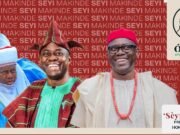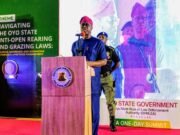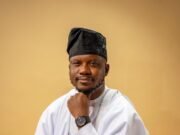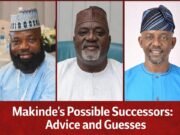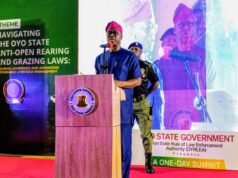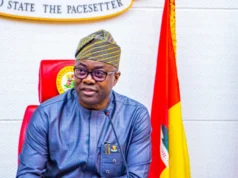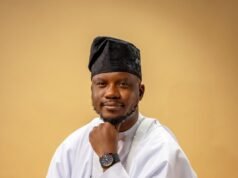The event was conceived in the womb of time to be a refreshingly different departure from the run-of-the-mill meet-ups on Islam. Or how else might one begin to reflect over a interview session or rather a conference, if you will, that had Prof Falola as the Preceptor and Sheikh Abdulrahman as the facilitator. The first -the interviewer – the intellectual and generic scholar, the second, – the interviewee- a consummate practitioner and missionary of Islam; the first, the world-renowned scholar of African history and culture, the second, an Islamist and globalist whose practice of the deen abhors all postures that privilege charlatanism and obscurantism particularly on the overarching category of Islam and Muslims. Thus, the stage was set for the dialogue between the scholar and the Imam; a dialogue that eventually became a multilogue simply because it drew voices and perspectives from across different spectrum of the world without prejudice to religion, gender or race.
In other words, when carefully pondered, the attention the interview drew from all around the world should not indeed be a surprise. This is because there is hardly any other category or subject in the world today that attracts passionate attention and interests such as Islam. The latter has remained a palimpsest or a rubber; the more it is theorized and analyzed the more enigmatic, so it seems, it appears.
Thus, when the interview eventually got underway, participants were held spell-bound by the incisive questions posed by Professor Falola to Imam Abdulrahmon Ahmad; questions that sought to remove the veil from the unthought-for-‘unthoughtable’; questions that explored the ordinarily unexplored in Islamic traditions. Professor Falola questioned Imam Abdulrahmon Ahmad, not as an outsider but an outsider-insider. He sought clarifications on matters relating to belief and practice; he ‘interrogated’ Imam Ahmad on the fissures and the disjunctures between Islam in the text and the contradictions in contemporary Muslim existential realities. Prof Falola’s questions to Imam Ahmad laden with adequate knowledge of continuities and change in Muslim realities; they were questions that only those who were grounded in Islamic hermeneutics and Muslim practice such as Imam Ahmad could answer.
In other words, the audience that participated in this interview including critics such as Father Bishop Kukah and Professor Nimi Wariboko would most likely not have been disappointed by the courage and candour displayed by Imam Ahmad while responding to questions and comments that came his way throughout the interview. His discussions of Islamic perspectives to pluralism be it at the classical or modern times, his perspective to Christian-Muslim relations which, according to him is premised on freedom of religious practices not extremism, the emphasis that he laid on the philosophy of the Islamic law that derives its strength from the promotion of social justice and his passionate argument that Islam supports and in fact demands the education of women and their integration into the society could only have been articulated by none other than the Chief Imam of the Ansar- Ud- Deen Society of Nigeria.
Despite the huge opportunity afforded participants through this interview to have direct access to the dynamics, the dialectics and the discourses that undergird Islamic beliefs and practices, it became evident that, like many others before it, more of such interactions and engagements with leaders of Islam and indeed those of Christianity remains a desideratum. In other words, what this interviewed has achieved, in the main, is that it opened new spaces of dialogue and understanding within, among and across faiths. It has long been my argument that the first step towards building global peace is the liquidation of spaces of ignorance of and about the other and what he holds dare.




